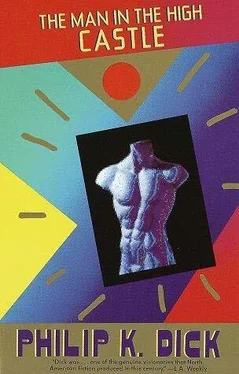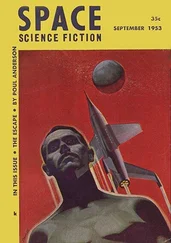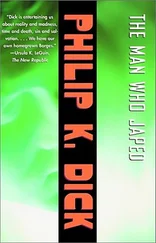Has he stumbled onto correct notion, Childan wondered, that certain of the historic objects in stores such as mine (not to mention many items in his personal collection) are imitations? There seems a trace of hint in his words. As if in ironic undertone he is telling me a message quite different from what appears. Ambiguity, as one trips over in the oracle… quality, as they say, of the Oriental mind.
Childan thought, He’s actually saying: Which are you Robert? He whom the oracle calls “the inferior man,” or that other for whom all the good advice is meant? Must decide, here. You may trot on one way or the other, but not both. Moment of choice now.
And which way will the superior man go? Robert Childan inquired of himself. At least according to Paul Kasoura. And what we have before us here isn’t a many-thousand-year-old compilation of divinely inspired wisdom; this is merely the opinion of one mortal—one young Japanese businessman.
Yet, there’s a kernel to it. Wu , as Paul would say. The wu of this situation is this: whatever our personal dislikes, there can be no doubt, the reality lies in the importer’s direction. Too bad for what we had intended; we must adapt, as the oracle states.
And after all, the originals can still be sold in my shop. To connoisseurs, as for example Paul’s friends.
“You wrestle with yourself,” Paul observed. “No doubt it is in such a situation that one prefers to be alone.” He had started toward the office door.
“I have already decided.”
Paul’s eyes flickered.
Bowing, Childan said, “I will follow your advice. Now I will leave to visit the importer.” He held up the folded slip of paper.
Oddly, Paul did not seem pleased; he merely grunted and returned to his desk. They contain their emotions to the last, Childan reflected.
“Many thanks for your business help,” Childan said as he made ready to depart. “Someday I will if possible reciprocate. I will remember.”
But still the young Japanese showed no reaction. Too true, Childan thought, what we used to say: they are inscrutable.
Accompanying him to the door, Paul seemed deep in thought. All at once he blurted, “American artisans made this piece hand by hand, correct? Labor of their personal bodies?”
“Yes, from initial design to final polish.”
“Sir! Will these artisans play along? I would imagine they dreamed otherwise for their work.”
“I’d hazard they could be persuaded,” Childan said; the problem, to him, appeared minor.
“Yes,” Paul said. “I suppose so.”
Something in his tone made Robert Childan take sudden note. A nebulous and peculiar emphasis, there. And then it swept over Childan. Without a doubt he had split the ambiguity—he saw .
Of course. Whole affair a cruel dismissal of American efforts, taking place before his eyes. Cynicism, but God forbid, he had swallowed hook, line and sinker. Got me to agree, step by step, led me along the garden path to this conclusion: products of American hands good for nothing but to be models for junky good-luck charms.
This was how the Japanese ruled, not crudely but with subtlety, ingenuity, timeless cunning.
Christ! We’re barbarians compared to them, Childan realized. We’re no more than boobs against such pitiless reasoning. Paul did not say—did not tell me—that our art was worthless; he got me to say it for him. And, as a final irony, he regretted my utterance. Faint, civilized gesture of sorrow as he heard the truth out of me.
He’s broken me, Childan almost said aloud—fortunately, however, he managed to keep it only a thought; as before, he held it in his interior world, apart and secret, for himself alone. Humiliated me and my race. And I’m helpless. There’s no avenging this; we are defeated and our defeats are like this, so tenuous, so delicate, that we’re hardly able to perceive them. In fact, we have to rise a notch in our evolution to know it ever happened.
What more proof could be presented, as to the Japanese fitness to rule? He felt like laughing, possibly with appreciation. Yes, he thought, that’s what it is, as when one hears a choice anecdote. I’ve got to recall it, savor it later on, even relate it. But to whom? Problem, there. Too personal for narration.
In the corner of Paul’s office a wastebasket. Into it! Robert Childan said to himself, with this blob, this wu-ridden piece of jewelry.
Could I do it? Toss it away? End the situation before Paul’s eyes?
Can’t even toss it away, he discovered as he gripped the piece. Must not—if you anticipate facing your Japanese fellowman again.
Damn them, I can’t free myself of their influence, can’t give in to impulse. All spontaneity crushed… Paul scrutinized him, needing to say nothing; the man’s very presence enough. Got my conscience snared, has run an invisible string from this blob in my hands up my arm to my soul.
Guess I’ve lived around them too long. Too late now to flee, to get back among whites and white ways.
Robert Childan said, “Paul—” His voice, he noted, croaked in sickly escape; no control, no modulation.
“Yes, Robert.”
“Paul, I… am… humiliated.”
The room reeled.
“Why so, Robert?” Tones of concern, but detached. Above involvement.
“Paul. One moment.” He fingered the bit of jewelry; it had become slimy with sweat. “I am proud of this work. There can be no consideration of trashy good-luck charms. I reject.”
Once more he could not make out the young Japanese man’s reaction, only the listening ear, the mere awareness.
“Thank you, however,” Robert Childan said.
Paul bowed.
Robert Childan bowed.
“The men who made this,” Childan said, “are American proud artists. Myself included. To suggest trashy good-luck charms therefore insults us and I ask for apology.”
Incredible prolonged silence.
Paul surveyed him. One eyebrow lifted slightly and his thin lips twitched. A smile?
“I demand,” Childan said. That was all; he could carry it no further. He now merely waited.
Nothing occurred.
Please, he thought. Help me.
Paul said, “Forgive my arrogant imposition.” He held out his hand.
“All right,” Robert Childan said.
They shook hands.
Calmness descended in Childan’s heart. I have lived through and out, he knew. All over. Grace of God; it existed at the exact moment for me. Another time—otherwise. Could I ever dare once more, press my luck? Probably not.
He felt melancholy. Brief instant, as if I rose to the surface and saw unencumbered.
Life is short, he thought. Art, or something not life, is long, stretching out endless, like concrete worm. Flat, white, unsmoothed by any passage over or across it. Here I stand But no longer. Taking the small box, he put the Edfrank jewelry piece away in his coat pocket.
Mr. Ramsey said, “Mr. Tagomi, this is Mr. Yatabe.” He retired to a corner of the office, and the slender elderly gentleman came forward.
Holding out his hand, Mr. Tagomi said, “I am glad to meet you in person, sir.” The light, fragile old hand slipped into his own; he shook without pressing and released at once. Nothing broken I hope, he thought. He examined the old gentleman’s features, finding himself pleased. Such a stern, coherent spirit there. No fogging of wits. Certainly lucid transmission of all the stable ancient traditions. Best quality which the old could represent… and then he discovered that he was facing General Tedeki, the former Imperial Chief of Staff.
Mr. Tagomi bowed low.
“General,” he said.
“Where is the third party?” General Tedeki said.
“On the double, he nears,” Mr. Tagomi said. “Informed by self at hotel room.” His mind utterly rattled, he retreated several steps in the bowing position, scarcely able to regain an erect posture.
Читать дальше










